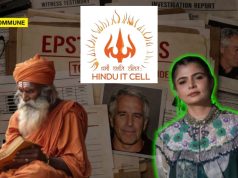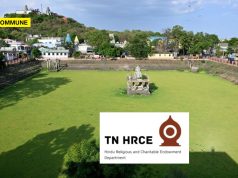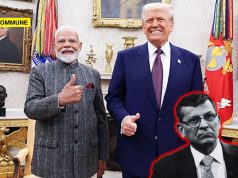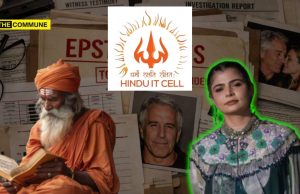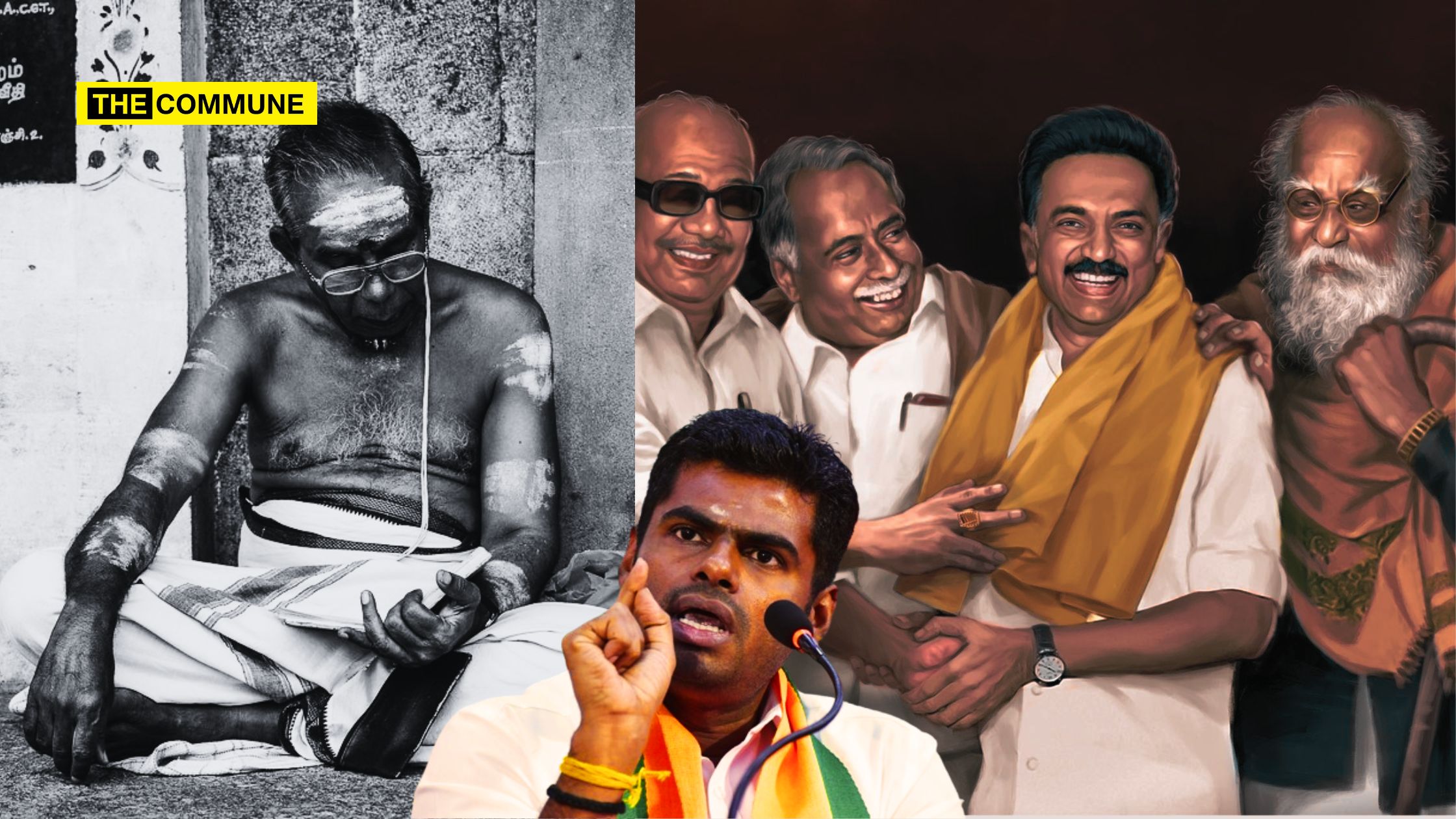
In a recent interview to The New Indian Express, Tamil Nadu BJP Chief Annamalai addressed the historical vilification faced by Tamil Brahmins in Tamil Nadu during the 1960s and 70s. He highlighted, “Any Tamil Brahmin who lived in Tamil Nadu during the 1960s and 70s might resonate with what I’m saying. The vilification, the abuse, the act of cutting someone’s hair, ridiculing people’s faith, and even putting a garland of slippers around a portrait of Ram—it was rampant. Every political party meeting, especially those of the DMK in the 1950s, 60s, and 70s, was filled with this kind of abuse. There was a concerted effort to target a particular segment of the community, the Brahmin community, just to vilify them and paint them as villains. This strategy was akin to what Hitler did with his propaganda—portraying one group as superior and another as inferior, thereby justifying the need to unite against the so-called villains.”
He added, “If we examine the narrative that the DMK promoted during the 1950s, 60s, and 70s, unfortunately, this was a time before social media or even traditional electronic media, so many incidents went unreported. For instance, there were instances where Ganapati idols were broken in front of temple priests. This era is poorly documented, and I am eagerly waiting for someone to write a well-researched book that critically analyzes what happened during that time.”
He recalled the exodus of Tamil Brahmins, “This period saw the exodus of Tamil Brahmins from Tamil Nadu to places like Mumbai, Delhi, and the California coast. Why did they leave? They felt insecure. The political environment in Tamil Nadu was hostile, with Tamil Brahmins being vilified in political speeches and even in schools, not just by individuals, but by politicians themselves.”
He stated the new strategy of vilification by DMK, “However, things have changed now. While the vilification is now more verbal than physical, it still exists. Even today, top leaders of the DMK, if they want to make fun of Tamil Brahmins, resort to a particular dialect to mock them. This kind of catcalling still persists.”
“My comparison is quite appropriate. I call a spade a spade. I don’t consider caste; I see everyone as equals. Whether someone is performing a pooja in a temple or inside the sanctum worshipping the god, their roles are equally important. For me, there’s no concept of superior or inferior. The DMK tries to assert superiority, but I believe everyone’s work is significant. Whether someone is taking care of an elephant or making garlands for the god, their contributions are equally valuable. So, where does the idea of inferiority and superiority come from?” he Annamalai.
Show me one politician in India who has spoken openly abt this sensitive issue apart from @annamalai_k
— Indhavaainko (இந்தாவாய்ங்கோ) 👊 (@indhavaainko) May 11, 2024
Subscribe to our channels on Telegram, WhatsApp, and Instagram and get the best stories of the day delivered to you personal.

